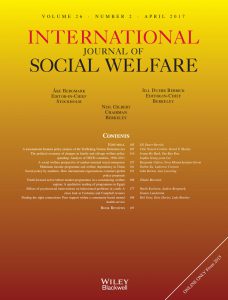Over Exposure
Pornography and censorship in China
by christinablunt
 Last Friday the Chinese government tightened its censorship of the internet search engine, Google. The website has been facing criticism from the state-supported internet watchdog, “China’s Internet Illegal Information Reporting Centre” (CIIIRC), for ‘disseminating pornographic and vulgar information.’ This is only the latest in a series of actions taken by the Chinese to restrict access to information via the internet. As of July 1 every P.C.s sold in the country will be fitted with filtering software. Some claim that the software, called “Green-Dam Youth Escort,” would censor all content deemed politically unacceptable, not just pornography. These actions are part of China’s campaign to control the “large volume of foreign internet pornographic information [that] has entered [their] borders.”
Last Friday the Chinese government tightened its censorship of the internet search engine, Google. The website has been facing criticism from the state-supported internet watchdog, “China’s Internet Illegal Information Reporting Centre” (CIIIRC), for ‘disseminating pornographic and vulgar information.’ This is only the latest in a series of actions taken by the Chinese to restrict access to information via the internet. As of July 1 every P.C.s sold in the country will be fitted with filtering software. Some claim that the software, called “Green-Dam Youth Escort,” would censor all content deemed politically unacceptable, not just pornography. These actions are part of China’s campaign to control the “large volume of foreign internet pornographic information [that] has entered [their] borders.”
China is, of course, not the first country to censor the content its citizens consume, and it certainly wont be the last. One must consider both the nature of the perceived threat and what the state stands to gain by stifling it. The perception of the government is that unmitigated popular culture is dangerous or subversive. Thus, popular culture enters the realm of the political.
The politics of popular culture is most commonly viewed through the lens of content that is meant to inspire political action. This, however, is only one dimension of the influence of the political on culture and of culture on the political. In “The Politics of Popular Culture,” John Street explains that popular culture is political simply by the state intervening in its production and distribution, most commonly through censorship, whether overt or otherwise. Street goes on to explain that the dichotomy established between ‘freedom of expression’ and ‘censorship’ is a false one.
Censorship has the potential to be political because of its attempts to weigh the freedoms that some content can restrict. The censorship of sex specifically, as in the example of China, may involve the denial of sexual identity. Some feminist theorists, such as Dworkin and MacKinnon, assert that the “censorship of pornography is justified because pornographic representations harm women, denying them their identity and their freedom.”
The censorship of popular culture is political in these three ways: the content being limited, the censorer, and the implications of these restrictions for freedom and identity. To what extent these controls on culture and consumption matter, however, depend not upon the politics of the state but the politics of identity; how culture animates thoughts. Identity is the subject of culture’s politics. Control over its formation is control over the populace.
![]() Read “The Politics of Popular Culture” at Blackwell Reference Online
Read “The Politics of Popular Culture” at Blackwell Reference Online















1475-682X/asset/akdkey.jpg?v=1&s=eef6c6a27a6d15977bc8f9cc0c7bc7fbe54a32de)

I wonder about the politics of female identity in a country where a demographic shift is producing a skewed ratio of male to female babies. Your post does a great job of highlighting the complexities of culture and politics, adding layers to the story.
Keri